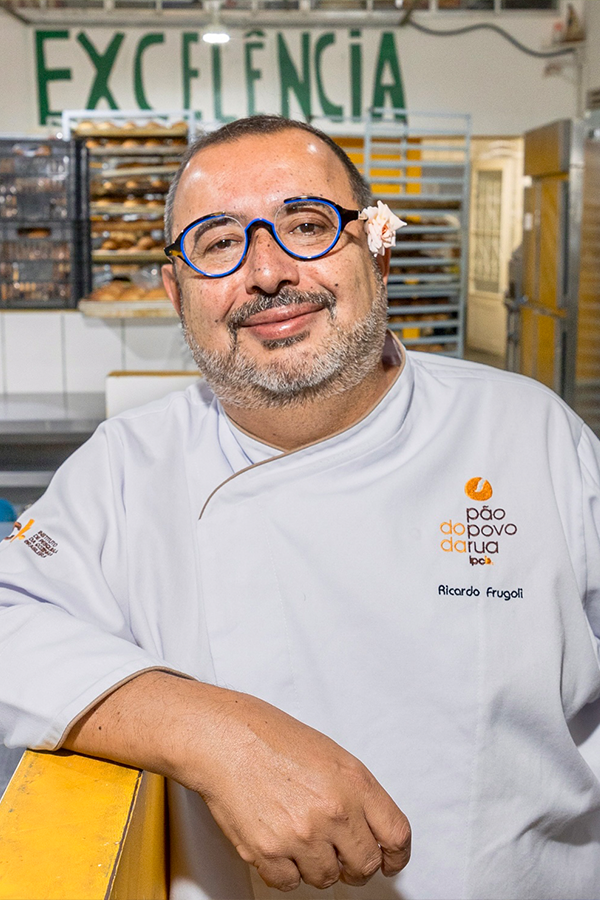
Ricardo Frugoli
"It is beautiful to see that people who were once on the streets are now recovered through professional training in baking.”
16/10/2024
Brazil
In his years living in São Paulo, Brazil, Ricardo Frugoli had taken out the trash hundreds of times. But it wasn’t until the Covid pandemic made him spend more time at home that he noticed what would happen to his waste after he discarded it.
With more time to observe his surroundings, he saw how desperate souls quickly rummaged through the bags for leftover food. It was a wake-up call for Ricardo, a food researcher and professor with master’s and PhD degrees in gastronomy, hospitality and Brazilan cuisine, to start a project aimed at helping homeless people in Sâo Paulo.
The same month, with the help of his husband, Wesley, and a group of volunteers, he began cooking lunches in his apartment and distributing them to the homeless in his neighbourhood. The Marmita Solidária project, as the initiative became known, ran for seven months in 2020 and provided more than 20 000 meals to people sleeping rough during the height of the pandemic.
“We must keep an eye on those nearby and first act in our neighborhood," he says. “Minimize hunger with food dignity.”
While still working on Marmita, Ricardo got news that an artisanal bakery was closing and wanted to donate their equipment. Soon, Pão do Povo da Rua was born, a new initiative that could reach even more people.
At the time, São Paulo was experiencing an unprecedented homelessness crisis, with nearly 50 000 people living on the streets. The project – which continues to this day – served some 1 800 people a day, providing them with two pieces of bread, a sweet pastry, and a glass of warm milk.
To have enough hands to prepare the food, the professor invited some of the project’s guests to work in the bakery. This brought new internal demands to support these new employees, many of whom where homeless and some struggling with addiction. As a result, Pão do Povo da Rua became a place where people could get additional support finding housing, physical and mental health assistance, legal aid, education and culture.
Today, around 80 people are involved in food production, training, and organization, and in April 2024, they distributed their 2 millionth meal – a milestone. As a parallel result, dozens of people have stopped using drugs and have reintegrated into society.
"It is beautiful to see that people who were once on the streets are now recovered through professional training in baking,” says the Professor, “and that today people are eating bread made by those who were previously living on the street."
